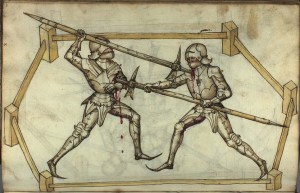Professors tend to be vigorously self-righteous when it comes to honesty. Witness the moral indignation they display when encountering instances of student plagiarism. Thus, it’s a bit embarrassing to have faculty members blithely offering an egregious falsehood whenever they post an “Out of Office” message on their e-mail. The message typically says something like:
“I will be away until [date] with limited access to e-mail.”
“Limited access to e-mail”? Oh really? You’re saying this in 2018, when virtually anyone with a standard-issue smartphone can launch a missile from an atoll in the Pacific while sitting in a Waffle House in Tougaloo, Mississippi having grits and home fries? Exactly how dumb do you think people are? Probably the only place on the planet where you would have limited access to e-mail is if you were residing inside the chest cavity of a polar bear while doing research in the Arctic Circle.
Of course, you know what your message actually means. It means that you don’t want to answer emails for a while. That’s a legitimate desire. What’s not legitimate is lying about it. Thus, in the name of transparency I am providing a template for professors to use when composing their out-of-office messages. Feel free to adapt it to your needs.
“I will be away until _______. Please note the following:
— If you’re somebody I enjoy hearing from, I’ll respond within 24 hours.
— If you’re not sure the above category applies to you, assume that it doesn’t.
— If you’re writing to ask me to serve on a faculty committee to revise the core curriculum, I will get back to you within 36 weeks.
— If you’re writing to ask me to chair a faculty committee to revise the core curriculum, I will delete your message and claim that I never received it.
— If you are from the Business Office, requesting additional documentation of my expenses for the conference on “Marsupials in 19th-Century French Literature” that I attended in Haiti last month, bite me. I already submitted my receipts. If you people lost them, that’s on you. In any event, you owe me $1,838.57.
— If you’re my department chair, and you’d like me to teach a course that starts in 10 days because the adjunct you hired for it just failed her drug test, fuggedaboudit.
— If you’re a student seeking a recommendation letter for graduate school, try to recall if I ever explicitly said that you should go to graduate school. If you can’t, don’t expect a reply.
— If you’re a student writing for any other reason, assume that I have never suggested that you go to graduate school. Do not expect a reply, even if your e-mail has nothing to do with graduate school.
— If you’re the colleague who bad-mouthed me to the Dean three weeks ago, and who now needs my assistance with something, the answer is NO.
— If you have ever used the phrase “lived experience” in a sentence, you can expect a reply within 24 hours, but it will take the form of a reprimand.
OK, I’ve tried to help. As you prepare your out-of-office messages for the upcoming holiday season, please take this opportunity to do the right thing.
Tell the truth.










